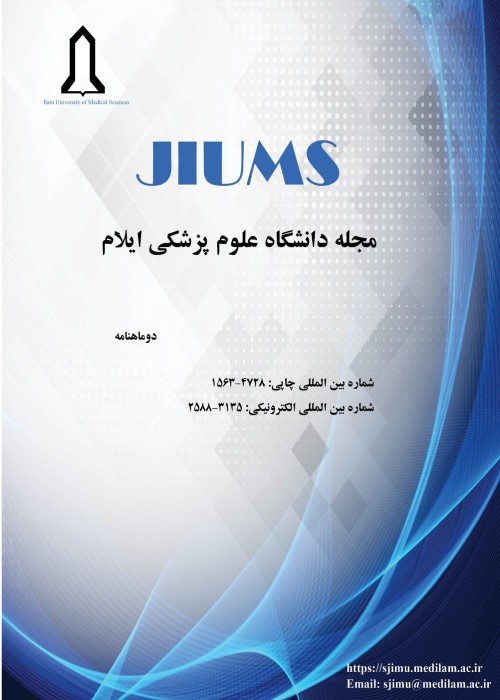Assessing Related Factors on the Illicit Use of Medications in Abbas Abad City(mazandaran): A Cross Sectional Study
Author(s):
Abstract:
Introduction
Self-treatment is a one of the main inevitableproblems in remedy cycle. In Iran, self treatment is so common that h-as caused the exessive use of drugs in the country.Therefore, this study aimed at dete-rming the influencial factors on self-trea-tment in the boarding clinic of Abasabad city (Mazandaran province). Materials and Methods
This is a descriptive cross-sectional study carried out in 2013 and 300 individuals refering to the Abas-abad’s clinic were selected randomly. Data was collected by a questionnaire as well as interviews and then the Chi-square test was used to analyze the data. Findings
Results of data analysis showed a significant relationship between the varia-bles of age, gender, education and occup-ation of people under study andeach of the questionaires’ items about the probable reasons of headstrong use of medicine and the selection of injection form (p value <0.05). We evaluated the relationship of exessive medicine use with matrimory sta-tus, gender, the effect of education and a-ccuption of people under study. It was found that self treatment is used by 204 men compared to 96 women, 176 married as compured to 124 singles, 137 preuniv-ersity level compared to 82 granduates. In our study, the major common of exessive use of drugs were easy availability of drugs from drugstors without prescription (98%), available drugs at home or getting from others (96.7%), lack of awareness on the dr-ugs’ complications (72.7%), and give little atttention to diseases by the individual (72.7%). Discussion & Conclusion
In order to incr-ease individuals awareness and perform-ance, especial educational programms sho-uld be designed and presented to people via various educational methods and proc-edures. Self-treatment is itself neither good nor bad. Policy makers should do interv-entions in both micro and macro levels to decrease inappropriateuse of medicines. The interventions include: Restrictingeasy access to medicines especially harmful and dangrous medicines; Instruction on how to use and maintain medicine to patient by physician and pharmacist; General training of society for rational use of medicines and limiting the number and type of medicines stored at home; Elevation the quality of sanitary and treatment services and incr-easing the access of society to service pres-entation system. The above mentioned are very helpful in our study for decreasing obtained preferences regarding the obstinate use of medicines.Keywords:
Self , treatment , medicine , exes , sive use , cross , sectional study , related fact , ors
Language:
Persian
Published:
Ilam University of Medical Science, Volume:22 Issue: 5, 2014
Pages:
11 to 19
magiran.com/p1333658
دانلود و مطالعه متن این مقاله با یکی از روشهای زیر امکان پذیر است:
اشتراک شخصی
با عضویت و پرداخت آنلاین حق اشتراک یکساله به مبلغ 1,390,000ريال میتوانید 70 عنوان مطلب دانلود کنید!
اشتراک سازمانی
به کتابخانه دانشگاه یا محل کار خود پیشنهاد کنید تا اشتراک سازمانی این پایگاه را برای دسترسی نامحدود همه کاربران به متن مطالب تهیه نمایند!
توجه!
- حق عضویت دریافتی صرف حمایت از نشریات عضو و نگهداری، تکمیل و توسعه مگیران میشود.
- پرداخت حق اشتراک و دانلود مقالات اجازه بازنشر آن در سایر رسانههای چاپی و دیجیتال را به کاربر نمیدهد.
In order to view content subscription is required
Personal subscription
Subscribe magiran.com for 70 € euros via PayPal and download 70 articles during a year.
Organization subscription
Please contact us to subscribe your university or library for unlimited access!


